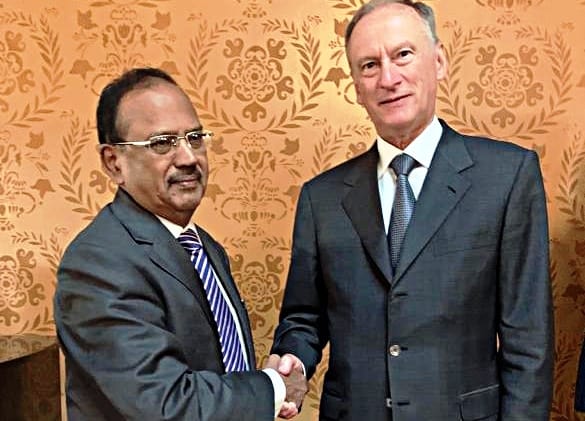
Month: August 2019

Virat Kohli & Boys Chill In Antigua
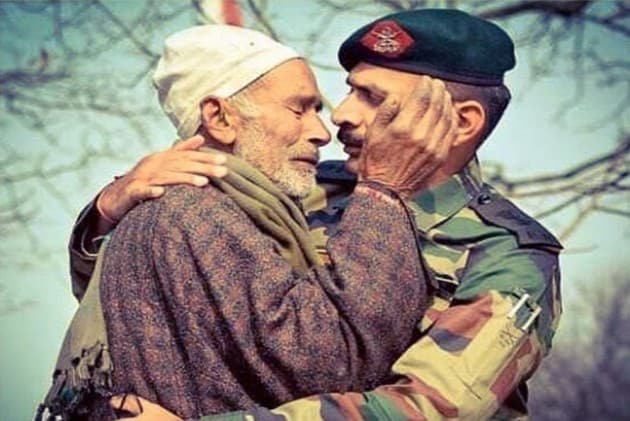
Army To Set UP Human Rights Section
This was approved by Defence Minster Rajnath Singh as part of a number of decisions taken regarding reorganisation of Army Headquarters.
“An umbrella organisation under VCOAS for enhanced focus on human rights issues – To give high priority to observance of human rights convention and values, it has been decided to set up a special Human Rights Section headed by ADG (Major General rank officer) directly under the VCOAS,” an official release said.
“It will be the nodal point to examine any HR violation reports. To enhance transparency and ensure the best of investigative expertise is available to the section, a Police officer of SSP/SP rank will be taken on deputation,” it said.
The decision assumes significance in the context of allegations of violation of human rights by the army in conflict zones like Kashmir and the north east.
The ministry said that an independent vigilance cell will also be made functional under Chief of Army Staff (COAS).
“A separate Vigilance Cell under COAS with Tri-Services representation – Presently, the vigilance function for the COAS is through multiple agencies and there is no single point interface. An independent vigilance cell will be made functional under COAS,” the release read.
“Accordingly, ADG (Vigilance) will be placed directly under the COAS for this purpose. It will have three Colonel-level officers (one each from Indian Army, Indian Air Force and Indian Navy). This will be done within the existing posts at Army Headquarters,” it said.
The ministry said that 206 officers including 3 Major Generals, 8 Brigadier, 9 Colonel, 186 Lt. Colonel/ Major will be relocated from Army Headquarters to Formations/Units of the Field Army.
“Re-location of 206 Army Officers from AHQ to Formations/Units of the Field Army – A total of 206 officers will be optimized from AHQ and these officers will be made available additionally to Formations/Units of the Field Army,” read the release. (ANI)
]]>Lookout Notice Against Chidambaram
The action by came shortly after the Delhi High Court on Tuesday dismissed Chidambaram’s anticipatory bail plea regarding cases filed by the CBI and the ED related to the alleged INX Media scam.
The Congress leader on Wednesday filed a Special Leave Petition (SLP) against the high court order seeking pre-arrest bail. He, however, was unable to get immediate relief as his plea was referred to Chief Justice of India Ranjan Gogoi.
CJI Gogoi had commenced hearing in the Ayodhya dispute case due to which Chidambaram’s counsel Kapil Sibal was unable to mention the matter before him for urgent hearing.
In his petition, Chidambaram told the Supreme Court that if the present SLP is not taken up on an urgent basis then the sole purpose of filing it will become “infructuous”.
“Therefore, it is desirable in the interest of justice that during the pendency of the proceedings before this Honble Court, the interim relief as prayed for herein be granted or else the Petitioner shall suffer irreparable loss,” read the petition.
The Delhi High Court had ,in its order, said that this grant of bail in cases like instant one will send a wrong message to the society.
“It cannot be forgotten that the petitioner was the FM at the relevant time and he had given FDI clearances to INX Media group for receiving overseas funds to the tune of Rs 305 crore. Facts of the case prima facie reveal that petitioner is the kingpin, i.e., the key conspirator in this case. Law enforcing agencies cannot be made ineffective by putting legal obstacles of offences in question,” the order read.
However, Chidambaram, in his petition, said that he granted approval to INX Media’s proposal in the “normal course of official business”.
“In May 2007, a bunch of proposals, including the INX Media case, was placed before the Finance Minister. He granted approval in the normal course of official business,” read the petition.
The Congress leader said that the Foreign Investment Promotion Board (FIPB), which was constituted in order to promote foreign investment in the country, unanimously approved the proposal of INX Media for approval for FDI.
In 2007, the Central Bureau of Investigation (CBI) had registered an FIR alleging irregularities in the Foreign Investment Promotion Board (FIPB) clearance given to INX Media to the tune of Rs 305 crore in 2007 when Chidambaram was the Union Finance Minister.
Based on the FIR, the Enforcement Directorate (ED) had filed a Prevention of Money Laundering Act (PMLA) case against him.
Chidambaram’s son Karti has also been named in the two cases. He was arrested on February 28, 2018, by the CBI and was later released on bail. The ED had attached properties belonging to him.
On July 4, a Delhi court had allowed Indrani Mukerjea, the former head of the INX Media, to turn an approver in the CBI case.
The agency had submitted that it has come across evidence in the form of conversations which only Indrani Mukerjea is privy to and will help consolidate the case. (ANI)
]]>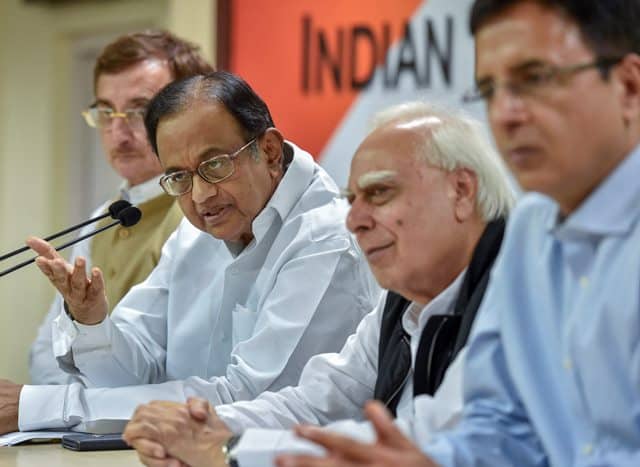
INX Case: No Anticipatory Bail For PC
In 2007, the Central Bureau of Investigation (CBI) had registered an FIR alleging irregularities in the Foreign Investment Promotion Board (FIPB) clearance given to INX Media to the tune of Rs 305 crore in 2007 when Chidambaram was the Union finance minister.
Based on the FIR, the Enforcement Directorate (ED) had filed a Prevention of Money Laundering Act (PMLA) case against him.
Chidambaram’s son Karti has also been named in the two cases. He was arrested on February 28, 2018 by the CBI and was later released on bail. The ED had attached properties belonging to him.
On July 4, a Delhi court had allowed Indrani Mukerjea, the former head of the INX Media, to turn an approver in the CBI case.
The agency had submitted that it has come across evidence in the form of conversations which only Indrani Mukerjea is privy to and will help consolidate the case.
(ANI)
]]>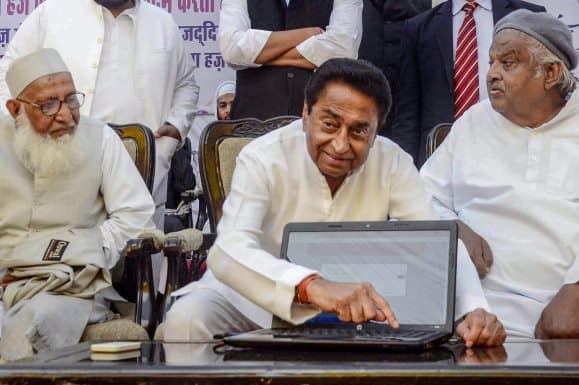
Kamal Nath Kin Held For Bank Fraud
On Sunday, the Central Bureau of Investigation (CBI) had booked Puri, then executive director of Moser Baer, and four others in connection with the bank fraud case.
Besides Puri, those who were booked by the agency are — Deepak Puri, Nita Puri, Sanjay Jain and Vineet Sharma.
They have been booked for alleged criminal conspiracy, cheating, forgery and corruption on the complaint filed by Murali Chetturi, a deputy general manager of Central Bank of India.
Puri is also an accused in a money laundering case connected to the Rs 3,600-crore AgustaWestland VVIP chopper scam.
On Monday, Special CBI Judge Arvind Kumar had reserved the order for August 21 on Puri’s plea seeking cancellation of a non-bailable warrant (NBW) against him in the case.
On August 14, the Delhi High Court had granted Puri interim protection from arrest till August 20.(ANI)
]]>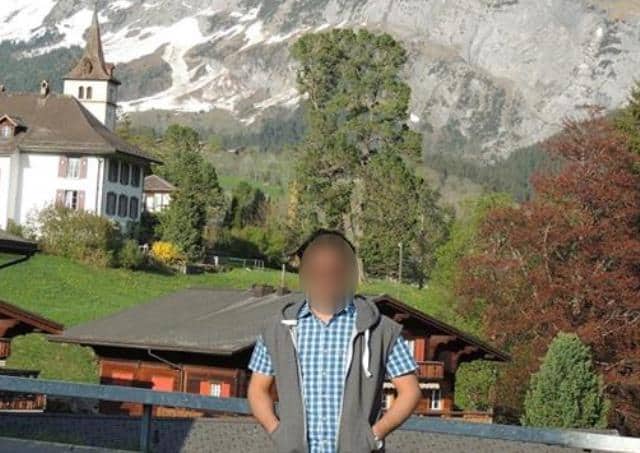
‘Govt Owes Kashmiris An Explanation’
After the abrogation of Article 370, Irfan, 22, a student of Delhi University who hails from Kashmir, is worried about his family members back home. He tells LokMarg whatever happens, peace must prevail in the valley.
I don’t want to mention my name or my native village as I fear that my family members back home will face consequences. The government owes an explanation to the people of Jammu and Kashmir over the abrogation of Article 370. And not all of us, who demand an explanation are separatists. Neither do all of us want to join Pakistan.
However, voices of people who do not pelt stones or join violent processions and shout anti-India slogans are hardly ever heard on the Valley.
Our voices are suppressed and nobody cares what we say. And all we want is peace. But advocating peace doesn’t mean that we are okay with the Armed Forces Special Power Act (AFSPA). The AFSPA is not good for a democratic state.
The abrogation of Article 370 led to massive influx of security forces in the Valley. This triggered fear among all the residents, who wanted peace to prevail. There has been enough bloodshed and we need to fix accountability and act properly without any prejudices. AFSPA thus, has to go.
Two weeks ago, when people cheered the Modi-Shah duo for finally abrogating Article 370, I was frantically trying to get in touch with my family back home, just to check if they were okay. But for two long, excruciating days I could not get in touch with them. I fail to understand how snapping the phone lines and internet services helped the government maintain peace and calm. I managed to speak to them only when the landline services were reinstated. The government cannot deny people their freedom to speech and expression. What they can do is effectively deal with the stone-pelters.
There are many Kashmiri students in other cities of India and they are looking for a better future. They will never join the stone-pelters or separatists, nor are they going to pick up arms against their own. The politicians must think about those who are studying in good schools and colleges and working in MNCs and other corporate firms here, they shall be the face of Kashmir.
Time has come that Kashmiri leaders and leaders at the Centre, think rationally. They must give peace a chance. Many young men are picking arms and getting killed in the Valley. I wonder who is getting the benefit of all this bloodshed. Normalcy will surely return in the valley, all we have to do is to think about our past and learn lessons. The silent majority in Kashmir wants peace. Nobody wants to live under the shadow of Kalashnikovs.
(The picture is representational as the narrator did not want to share his photograph)
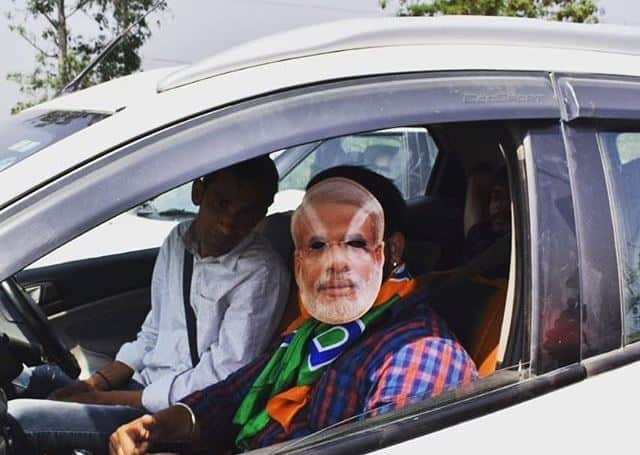
Three Disturbing Trends That Could Derail India
In a recent cover story, a leading Indian newsmagazine published an opinion poll, which found that a large majority of Indians think India’s Prime Minister, Mr Narendra Modi, towers above all other politicians and how for many of them, he evokes a sense of blind faith. The magazine’s cover headline blared: “Modistan” with a tagline that read “The nation is in the grip of Modimania. Indians believe he has all the answers.” According to the poll, Mr Modi’s approval ratings are sky high among respondents, making him the most popular Indian prime minister ever.
That cover story could indeed reflect the mood of the nation three months after Mr Modi and his party were re-elected in a sweeping electoral victory, but it also reflects the mood of much of Indian media, which has (with a few rare exceptions) been overtly effusive with its plaudits for the government and the Prime Minister. To keen observers of India’s current affairs, this could seem incongruous. While Mr Modi and his party decimated their political rivals—the Bharatiya Janata Party and its allies won 353 of the 543 seats in the crucial lower house of Parliament—and for that they deserve the requisite accolades, several disturbing trends have emerged in the country that deserve sceptical analysis. Let’s look at just three of them.
The Indian Economy Is Ailing
In her first Budget recently, India’s new finance minister, Ms Nirmala Sitharaman, declared that India’s GDP would touch USD 5 trillion by 2025 (or double the current level of USD 2.7 trillion). If India has to achieve that target in six years, its economy has to grow at a nominal rate of 12% a year beginning now. Even to the gushiest supporters of India’s government that should look like a very tall order. Let’s view it from another angle: In order to achieve a GDP target of USD 5 trillion, India would require investments to the order of ₹100 lakh crore over the next five years.
Recently, India’s largest corporation, Reliance Industries, which is a massive conglomerate with interests in oil refining, petrochemicals, telecoms, retail, and a host of other major businesses, indicated that it was applying brakes on its investment spree and, presumably, consolidating its position across its businesses instead of expanding. An important rationale for corporate investment decisions is linked to the outlook that companies perceive for their businesses. If a large corporate entity such as Reliance decides to go slow on further investments, could it mean that it senses dark clouds on the horizon? And if Reliance decides to play it safe, could it mean that other, relatively smaller organisations may also follow suit?
Gloomy economic trends have already begun to show up. The Indian auto industry, which is often a good indicator of economic activity, particularly in the manufacturing sector, has already reported a slowdown in sales. Last month car sales declined 30% on a year-on-year basis, a sharp drop and the worst that the industry has seen in nearly 20 years. What is more, this is the ninth consecutive decline in monthly sales that the industry has witnessed. This could lead not only to a cap on further investments but also lay-offs and soaring inventory. Mr Modi’s “Make in India” scheme, which he launched in his first term as Prime Minister, aimed at increasing the share of the manufacturing sector from 16% of GDP to 25% by 2022 and at creating 100 million jobs in the sector. But thus far, the track record of job creation and investment has been far from encouraging, and if the auto sector’s travails are any indication, things could get worse.
The Rise Of Nationalism Is Alarming
Now, turn the focus to the trends emerging in Indian society and the cause for concern may seem serious. One of the hallmarks of India’s democracy has always been its pluralism. Few nations are as heterogenous—ethnically, religiously, linguistically, or culturally—as India is. Peaceful co-existence has always been cited as the glue that keeps a nation of 29 diverse states together. Of course, there have been separatist movements in India—in Kashmir, in Punjab, and in the demands (often acceded to by the government) for separate states based on different factors. Yet, the bedrock that has enabled India to fight Balkanisation of the kind that many other regions of the world have experienced, often accompanied by violent upheavals, has largely remained unmoved.
Such pluralistic values could now be at risk. These concerns stem from recent developments in two states—Jammu & Kashmir (J&K), and Assam. Mr Modi’s government recently decided to revoke the statehood status of J&K and converting it to a Union Territory, which, for all practical purposes, means that it will be governed not by an elected state government but by a governor acting as a proxy for the central government in Delhi. Further, the special status that Kashmir has enjoyed under Articles 370 and 35A of the Indian Constitution, will now be revoked. Since India’s Independence in 1947, Kashmir has been an area of dispute between India, Pakistan and China. The special status that it enjoyed thus far allowed Kashmir to have a separate constitution, a state flag and autonomy over the internal administration of the state, including things like granting citizenship, ownership of property, and fundamental rights.
Since 1989, Kashmir has witnessed a surge in militancy, much of which, India believes, is fuelled by cross-border terrorism from Pakistani territory, with benign or even active support of that neighbour-country’s military. Several wars have been fought with Pakistan over areas in the region that it occupies. And there have also been skirmishes with China over territory that the latter wants to appropriate. However, the special status to Kashmir is something that the largely Muslim population of that state has supported and would like to be continued. Currently, in the wake of the decision to revoke statehood and rescind the special status, Kashmir has been under what could be called a “communication curfew”—telecom links have been nearly completely blocked and local unrest is being tackled by the Indian military force.
While the rest of India’s largely Hindu population (80% of Indians are Hindus and 14% Muslims) may seem ambivalent about the goings on in Kashmir, bigger repercussions in the rest of the country could be imminent. Mr Modi’s party, the BJP, and his government are unabashedly pro-Hindu. In his first term (between 2014 and 2019), communal tensions, fuelled by instances of alleged cow slaughter by Muslims, or over disputed religious sites, sharply increased, sometimes culminating in violent confrontations and even a series of incidents where Muslims were lynched by members of the ultra-right-wing Hindu organisations. There is no guarantee that tensions in Kashmir will not spill over to the rest of India.
In Assam, on the eastern border of India, the government has imposed a registry of citizenship ostensibly to check illegal immigrants (mainly Muslims who have entered the country via Bangladesh). All residents of the state have to prove their Indian credentials before they can be allowed to stay in the country. This has led to a serious unrest, primarily because the implementation of the new law can be easily abused. Millions of Muslims risk being stripped of their Indian citizenship and being detained in camps as migrants, prior to possible extradition.
The gnawing fear is that such laws could be imposed across India in other states as well where the government believes illegal migrants have settled. If that happens, it could lead to explosive consequences. First, the implementation of such laws could be abused wantonly, and many legal immigrants could suffer. Second, it could further fuel already rampant anti-Muslim sentiments among sections of India’s majority community and lead to an undesirably hostile environment that would threaten the very idea of a pluralistic nation.
The Opposition And Media Are Neutered
In any democracy, a strong Opposition is as essential as a free press. Opposition parties keep a healthy check on governments, particularly those that are electorally as powerful as Mr Modi’s so that institutions such as the judiciary, the central bank, and other market regulators function fearlessly and independently. Likewise, a vibrant democracy deserves a free press that can ask questions of those in power and scrutinise the quality and fairness of governance. Unfortunately, in India, particularly after the past two parliamentary elections, the biggest Opposition parties have been decimated. The BJP’s main rival, the Congress party, which could win only 52 seats (a paltry percentage of the total of 543), is hobbled. Its president, Mr Rahul Gandhi, has resigned and signs of rebellion in its ranks have already emerged. Other political opponents of the BJP and its allies are mainly ones that have regional clout but not a national influence that could make a difference.
The Indian mainstream media, which has traditionally enjoyed freedom of expression, now appears to be a laughable caricature of itself. Leading newspapers, magazines and TV news channels have embraced sycophancy instead of objective scepticism when it comes to covering the government and its affairs. The government, which is a big advertiser providing revenues to media groups, has tacitly (and sometimes overtly) used this to influence editorial strategies. Such a trend is not just harmful to the quality of journalism but, eventually, to the core values of a democracy. And while “Modistan” makes for a catchy, eye-ball grabbing headline, it doesn’t really bode well for the idea of India and the democratic values that the nation has cherished for long.
]]>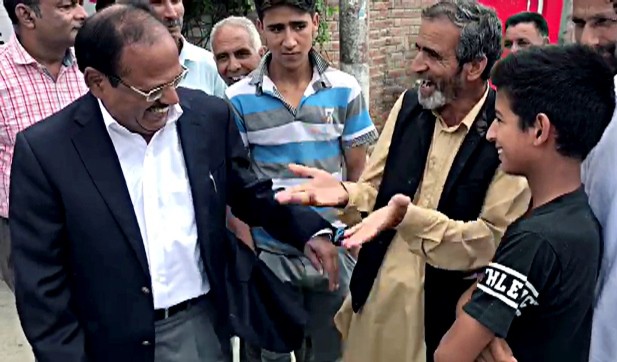
Shah Meets Doval, IB Chief, Home Secy
Sources told ANI that officials briefed Shah about the present situation in Jammu and Kashmir after the opening of 190 schools in the Valley.
After the abrogation of the special status of Jammu and Kashmir, no violence has been reported so far except one or two clashes in the past week. The valley has been peaceful.
Normal life has been restored in the Jammu region with the internet services snapped from only some pockets in the region.
Some major decisions have been taken in the meeting to restore normal life in the Jammu and Kashmir.
The meeting comes after Doval returned here after a 10-day visit to Jammu and Kashmir which was undertaken in the aftermath of the Centre’s decision to scrap Art 370 and create two new Union Territories of Jammu and Kashmir and Ladakh.
During his stay, Doval had interacted with different sections of society and oversaw the security arrangements in the state and interacted with local people in Shopian, Anantnag and downtown Srinagar. He had also interacted with jawans from Jammu and Kashmir police and CRPF. (ANI)
]]>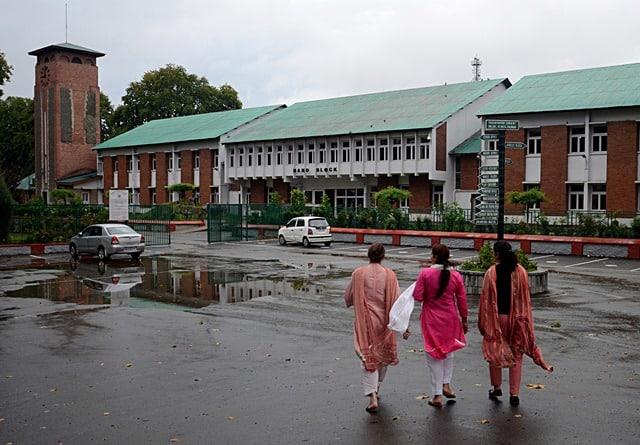
Primary Schools Reopen In Kashmir
However, the high schools, higher secondary schools and degree colleges will remain closed.
The government had on Sunday said that as many as 190 schools would be re-opened in Srinagar alone. Government offices will be made fully functional across Kashmir, it had said.
“We have a plan of reopening over 190 primary schools in Srinagar district alone,” Principal Secretary, Planning and Development, Rohit Kansal had said.
Restrictions on communication continued in most parts of the Valley barring some areas, while mobile Internet services in five of ten districts were suspended again in Jammu on Sunday, a day after being restored.
The government has said that it would ease and lift the restrictions in a phased manner in Jammu and Kashmir.
The process of easing of prohibitory orders and providing relaxations continued on Sunday. The relaxations were provided in 50 police stations as against 35 police stations on Saturday, and the duration in the relaxation was increased from six hours to eight hours, the government had said.
No untoward incident was reported from the areas where relaxation was provided.
Prohibitory orders were issued after the abrogation of Article 370 and bifurcation of the state into two Union Territories — Jammu and Kashmir, and Ladakh on August 5. (ANI)
]]>